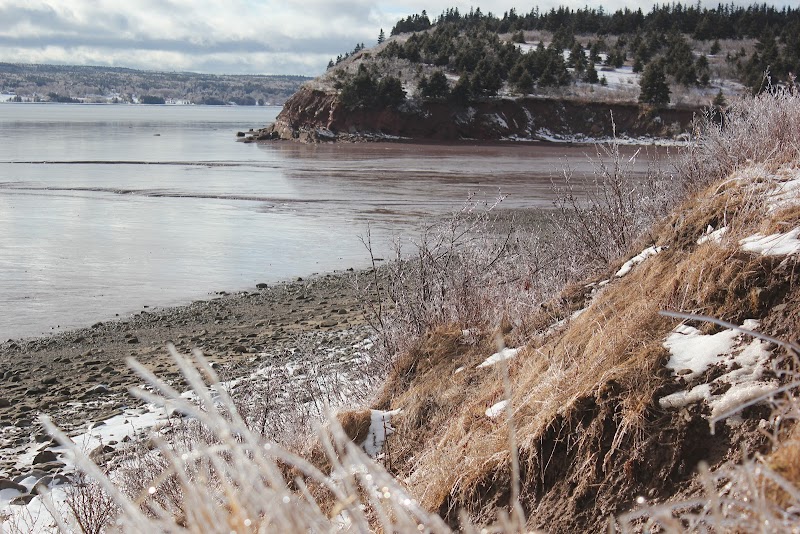
Trail-Running the Edge: Amherst Coastal Trail Races in Nova Scotia
Amherst Coastal Trail Races offer a rugged 15-kilometer challenge along Nova Scotia’s distinctive coastline, blending forest paths with rocky shorelines. Ideal for runners and hikers eager for a practical but scenic adventure, the trail tests endurance amid the sharp rhythms of sea and forest.
Choose Trail-Ready Footwear
Wear shoes with strong traction to handle slippery rocks and exposed roots, ensuring safety and steady footing throughout rocky and forested sections.
Hydrate Early and Often
Bring at least 1.5 liters of water for the race; the coastal winds can mask dehydration, so drink proactively especially in summer months.
Start Early for Cooler Trail
Begin your run or hike at dawn to avoid heat buildup and enjoy quieter, less crowded trails under soft morning light.
Prepare for Coastal Weather Variability
The Bay of Fundy winds can shift quickly; pack a lightweight, breathable windbreaker to maintain comfort and prevent chills.
Trail-Running the Edge: Amherst Coastal Trail Races in Nova Scotia
The Amherst Coastal Trail Races cut a course along the rugged shoreline of Nova Scotia's Bay of Fundy, offering a unique blend of endurance and environmental immersion. Starting in Amherst, this race stretches over a variety of terrain—from packed forest trails to rocky coastal paths—demanding respect for the landscape’s shifting rhythm. The full race covers approximately 15 kilometers with an elevation gain of about 300 meters, enough to challenge runners without tipping into extreme territory.
The trail itself is fiercely itself: the ocean's persistent roar presses against the cliffs, daring runners forward, while inland pockets of spruce and fir stand firm, shading parts of the route with cool respite. Hikers and runners alike encounter a terrain mix of soft earth, exposed roots, and occasional slippery rock. The challenge lies in maintaining steady footing as currents of wind push against your progress, reminding you this race is a cooperation between human effort and natural force.
Best attempted in late spring through early fall, the trail’s conditions fluctuate with the seasons. Spring’s dampness leaves the forest floor soft, but mud can slow pace. Summer brings firm ground and warm air, though hydration needs spike as the Atlantic winds grow still. Fall invites crisp air and vibrant foliage, adding a visual edge to the already demanding course. Winter is off-limits for this event but offers a separate beauty to those prepared for cold-weather adventuring.
Preparation is practical: lace up trail shoes with solid grip to navigate the roots and rocks, pack layers to adjust to quick coastal changes, and bring water sufficient for 2–3 hours of activity. Early morning starts help beat both heat and crowds, making for calmer, safer trail conditions.
Along the race, keep an eye for common local wildlife such as bald eagles overhead and the occasional deer slipping through forest shadows. The trail skirts historical sites tied to Amherst’s shipbuilding past, marking a dialogue between human endeavor past and present.
For those aiming to capture the experience, dawn light breaking over the Bay of Fundy cliffs casts long shadows and turns the Bay’s famously high tides into a moving canvas. Mid-race vantage points offer sweeping views of the open water, while closer to forested sections, macro opportunities arise in mossy logs and wildflowers.
Whether you're a runner tackling the race or simply exploring the trail, Amherst Coastal Trail demands a balance of enthusiasm and respect. It invites adventurers to engage with its natural forces in a raw, practical way, rewarding effort with moments of clear, fierce beauty.
Ready your gear, respect the trail’s pulse, and let the shorelines of Nova Scotia push you through a challenging, memorable race experience.
Nearby Trips
All Adventures
Boat Charters
Water Activities
Adventures near Amherst, Nova Scotia
Discover the unique and memorable adventures that make Amherst, Nova Scotia special.
Frequently Asked Questions
What is the total distance and elevation of the Amherst Coastal Trail Race?
The full race covers approximately 15 kilometers with an elevation gain of around 300 meters, combining coastal and forest trail sections.
Are there any wildlife encounters participants should expect on this trail?
Runners and hikers commonly spot bald eagles soaring overhead and may see local deer or smaller forest animals along more secluded stretches.
Is the trail suitable for beginners or casual hikers?
While accessible to active beginners, the trail’s rocky terrain and elevation changes require a moderate fitness level and good footwear for safety.
When is the best time to participate or visit the trail for racing and hiking?
Late spring through early fall is ideal, with summer offering the most stable trail conditions and fall providing scenic views and cooler temperatures.
Are there any historical or cultural sites along the race route?
Yes, the trail passes near historical markers linked to Amherst’s shipbuilding heritage, connecting adventurers to the area's maritime past.
What environmental considerations should runners keep in mind?
Stay on marked trails to protect fragile coastal and forest ecosystems, pack out all trash, and be mindful of wildlife habitats especially during breeding seasons.
Recommended Gear
Trail Running Shoes
Provides grip and foot protection on uneven, rocky, and root-covered pathways.
Light Windbreaker
Shields from unpredictable coastal winds and light rain.
Hydration Pack or Bottles
Stores sufficient water for 2–3 hours, critical to stay hydrated amid warmer temperatures.
Headlamp or Handheld Light
Useful for early or late runs as daylight shortens.
Local Insights
Hidden Gems
- "The 'Cliff Overlook' halfway through the course offers less-known panoramic views rarely crowded."
- "A small tidal pool area near the trail’s edge is a natural aquarium thriving with marine life during low tide."
Wildlife
- "Bald eagles dominate the skies here, and the trail also hosts migrating songbirds and foxes in forested sections."
History
"Amherst’s coastal area was historically vital for shipbuilding during the 19th century, reflected in nearby plaques and preserved docks."
